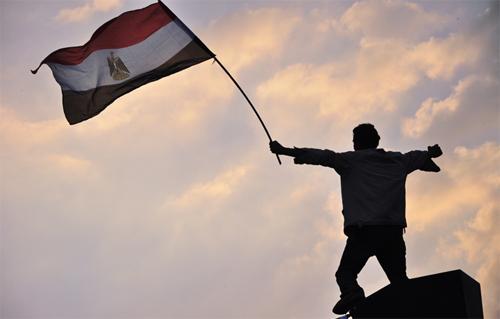Voices from Egypt
By Ben Gilbert
Rhonda Abdoo knew Egypt needed change. She owns an advertising firm in Cairo. And she had first hand experience with the corruption at the core of former President Hosni Mubarak’s regime.
But Abdoo didn’t attend the protests that began January 25th. In fact, she didn’t think Mubarak should step down. She thought he could serve out his term and help Egypt transition to democracy.
But Abdoo feels nothing but relief now that the regime is gone:
“Now I feel like I can speak out. I was president of student council of my school, at American university, I was active member of the student union, and what I wrote, it made a lot of people uneasy,” Abdoo said.
“But I was always protected within the university. Since I graduated I stopped being involved. I was too scared that if I speak up, something will happen to my business. And we are responsible for a lot of families here, we can’t put our business at risk.
“I believe that with real freedom and real democracy, I will be able to say what I want to say without being threatened the next morning that I will either be taken somewhere, or some sort of accusation will come to me and my business will close down. Only yesterday I was thinking that my character has changed. I want me back! I want the real me back,” Abdoo said.
Then there’s the story of graphic designer Adham Bakry. On the night of January 24, he decided to go to the protest the next day. His friends were sceptical.
“They said, what’s your agenda, what are you going to fight for?” Bakry said. “And I said, ‘I’m not like really political, I don’t have a great idea what’s going on, or how this country is run. But I do want change.’ And I have nothing better to do on that day that go down. I’m a graphic designer, very simple, but I wanted to be out there as a body.”
Tahrir Square
Bakry was also in Tahrir square eight days later during the infamous camel charge by pro Mubarak thugs and the subsequent fighting.
“I was like, damn, we’re going to die. I have a friend who was shot by a sniper and he passed away,” Bakry said. “I’m still in the recovery phase, I’m not a soldier, I’m not used t o this violence. I’ve never thrown a rock at somebody, ever. To me, it’s just like, as soon as Mubarak left, a couple days at home, I was just like, speechless, thinking about all the days that passed. It’s bizarre; it’s too much information for my head to process.”
Bakry is just as confused by the political debates that are swirling in the wake of Mubarak’s ouster. But, he says, the protestors have achieved at least part of their victory.
“Somebody like me, who doesn’t know much about politics, I need to sit and read and know about his stuff,” Bakry said. “But still a lot to be done. If we come every Friday and show them, we’re still here.”
Celebration
They came Friday men; women and children carried Egyptian flags and celebrated two weeks since the toppling of the Mubarak regime.
Hisham Kassem was a target of that regime. He’s president of the Egyptian Organization for Human Rights. He went on to found two newspapers. Now, he’s planning to open a new news organization. But this one’s going to be what Kassem hopes Egypt will be like; free and forward thinking.
“I’m going to be able to work like you (Western journalists) as opposed to … I don’t know who said this, but some poet said … ”
Kassem’s eyes began to water. He turned away.
“I spent more time defending my guitar than playing,” he said. “You know, maybe in the remaining work years I have, I’ll be able to work like a normal publisher, not having to struggle to do my work every day to play the guitar.”
Every day, reporters and producers at The World are hard at work bringing you human-centered news from across the globe. But we can’t do it without you. We need your support to ensure we can continue this work for another year.
Make a gift today, and you’ll help us unlock a matching gift of $67,000!
